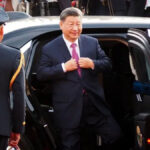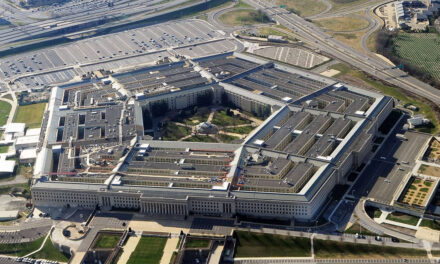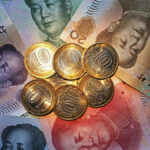
China’s Rewriting of History – Modeled on Orwell’s ‘1984’

The South China Sea, the Taiwan Strait, and the Himalayan valleys have become stages for China’s assertive display of its territorial ambitions, challenging the sovereignty of neighboring nations through military confrontations. This aggressive posture is not grounded in contemporary politics alone but is deeply rooted in a selective interpretation of history that the Chinese Communist Party (CCP) employs to justify its expansive territorial claims. From the contested waters around the Senkaku/Diaoyu Islands to the claims over Arunachal Pradesh and vast stretches of the South China Sea, Beijing’s narrative is consistent: these lands have always belonged to China. Yet, this narrative conveniently omits China’s historical dominion over regions it no longer claims, such as Mongolia and Vietnam, highlighting a selective recall of history tailored to current geopolitical objectives.
The CCP’s territorial narratives are not merely academic exercises; they are integral to the Party’s legitimacy and the realization of President Xi Jinping’s vision for China. This legitimacy is intricately linked to reversing the “century of humiliation” experienced during the late Qing Dynasty, when China was forced to cede territories to colonial powers and Japan. These historical grievances, repurposed as the foundation of modern claims, underscore a selective memory that aligns with national rejuvenation goals rather than factual historical continuity. The CCP’s approach to Taiwan epitomizes this strategy, where the island’s strategic and symbolic significance to China’s national identity and global maritime aspirations overshadows any genuine historical claim to sovereignty.
Historically, the CCP has shown flexibility in territorial claims, negotiating settlements with neighboring countries during periods of internal unrest or when strategic advantages were unclear. Instances such as the territorial settlements following the Tibetan uprising in 1959, and negotiations with India, Nepal, and Myanmar, demonstrate a willingness to compromise in favor of diplomatic solutions and border stability. However, as China’s national power and confidence have surged, so too has its inclination toward assertiveness over compromise. This shift is evident in the hardline stance on the Senkaku Islands following the discovery of potential oil reserves, and the inclusion of disputed territories in the standard map of China despite historical settlements with Russia.
Beijing’s manipulation of UNESCO heritage site designations further illustrates its strategic use of history and culture to cement its territorial claims and national narrative. By promoting sites and practices that reinforce a Han-centric view of Chinese identity, the Party seeks not only to enhance tourism and cultural prestige but also to weave a narrative of a unified, continuous Chinese civilization that supports its territorial ambitions. This cultural strategy complements the more overt military and diplomatic maneuvers, embedding China’s claims within a broader narrative of historical inevitability and cultural legitimacy.
The CCP’s project to “sinicize” religion, including the rewriting of religious texts like the Bible, is another facet of its efforts to reshape history and identity. By aligning religious teachings with socialist values and party loyalty, Beijing aims to ensure that all aspects of Chinese life reflect and reinforce the CCP’s vision of national unity and strength. This campaign extends beyond mere censorship or control, representing a profound assertion of the Party’s authority over the spiritual and historical narratives that shape Chinese identity.
The selective memory and strategic nostalgia employed by the CCP is very much the method and intentions of the fictional government in Orwell’s dystopian novel 1984. While the world watches with horror, the people of China are subjected to official lies, that, as with all propagation’ will at least fool some of the people and, with persistence over a generation, will be perceived as truth.
https://www.foreignaffairs.com/reviews/chinas-rewritten-past
https://www.foxnews.com/opinion/chinese-communist-party-rewriting-bible



























Dare I say it? Who cares?
Does China bitch about what Florida teaches?